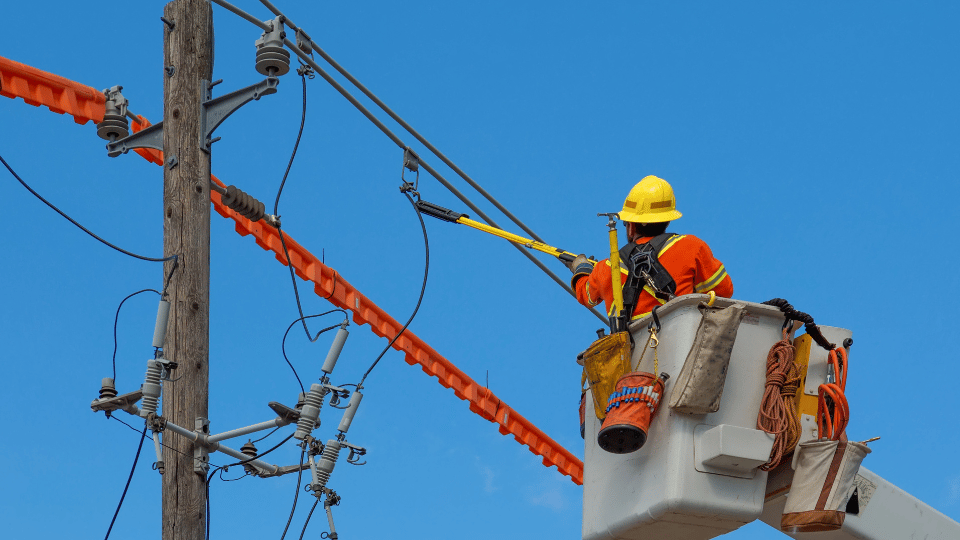Electrical contractors in California play a vital role in ensuring that homes, businesses, and public spaces are safely powered. However, with this responsibility comes inherent risks, making it essential for these professionals to have appropriate insurance coverage. One of the most crucial types of insurance for electrical contractors is general liability insurance. This article delves into what general liability insurance covers, what it doesn’t, and its significance for electrical contractors operating in California.
Understanding General Liability Insurance
General liability insurance is designed to protect businesses from financial loss arising from claims of injury or damage caused to others during business operations. For electrical contractors, this means coverage in scenarios such as:
- Bodily Injury: If a client or third party is injured due to the contractor’s work, this coverage can handle medical expenses and potential legal fees. For instance, if someone trips over equipment left on-site and sustains injuries, general liability insurance can cover the associated costs.
- Property Damage: Accidental damage to a client’s property during electrical work is covered. For example, if a contractor inadvertently causes a fire while installing wiring, resulting in property damage, this insurance can cover the repair costs.
- Personal and Advertising Injury: This includes non-physical harms like libel, slander, or copyright infringement related to the business’s advertising practices.
What Isn’t Covered by General Liability Insurance
While general liability insurance offers broad protection, it’s essential to understand its limitations. Typically, it does not cover:
- Professional Errors: Mistakes or negligence in professional services, such as design errors or improper installations, are not covered. For these scenarios, professional liability insurance, also known as Errors & Omissions (E&O) insurance, is necessary.
- Employee Injuries: Injuries sustained by employees on the job are not covered under general liability insurance. Instead, workers’ compensation insurance is required to handle such incidents.
- Damage to the Contractor’s Property: Any damage to the contractor’s tools, equipment, or property is not covered. Separate coverage, like commercial property insurance or inland marine insurance, is needed for such protection.
California’s Legal Landscape for Electrical Contractors
In California, the construction industry is regulated by the Contractors State License Board (CSLB). While the state does not mandate general liability insurance for all contractors, it is highly recommended and often required in practice. Key points include:
- Licensing Requirements: To obtain a C-10 Electrical Contractor license in California, applicants must secure a contractor license bond of $25,000. This bond serves as a financial guarantee that the contractor will adhere to state laws and regulations.
- Workers’ Compensation Insurance: If an electrical contractor has employees, California law mandates carrying workers’ compensation insurance. This ensures that employees injured on the job receive necessary medical care and compensation for lost wages.
- Client and Project Requirements: Many clients, especially commercial entities and general contractors, require proof of general liability insurance before awarding contracts. This requirement protects clients from potential financial losses due to accidents or damages during the project.
The Relevance to California Residents
For residents and businesses in California, hiring electrical contractors with appropriate insurance coverage is crucial. Here’s why:
- Financial Protection: If an uninsured contractor causes damage or injury, the financial burden may fall on the property owner. Ensuring the contractor has general liability insurance protects clients from such unforeseen expenses.
- Quality Assurance: Contractors who invest in comprehensive insurance coverage demonstrate professionalism and a commitment to their trade. This often correlates with adherence to safety standards and quality workmanship.
- Legal Compliance: Engaging contractors who comply with state insurance requirements ensures that projects proceed without legal hitches, avoiding potential fines or work stoppages.
Practical Examples and Case Studies
To illustrate the importance of general liability insurance, consider the following scenarios:
- Property Damage Incident: An electrical contractor was hired to rewire a historic home in Los Angeles. During the process, a mistake led to a small fire, causing significant damage to the property’s interior. The contractor’s general liability insurance covered the repair costs, preventing a potential lawsuit and financial strain on both the contractor and the homeowner.
- Bodily Injury Case: In San Francisco, a contractor’s ladder accidentally fell, injuring a passerby. The injured individual required medical attention and filed a lawsuit for damages. The contractor’s general liability policy covered the medical expenses and legal fees, safeguarding the business’s reputation and financial stability.
- Client Requirement: A tech company in Silicon Valley was renovating its office space and required all subcontractors to have a minimum of $1 million in general liability coverage. An electrical contractor without this coverage was unable to secure the contract, highlighting the necessity of insurance for business opportunities.
Conclusion
General liability insurance is an indispensable component of an electrical contractor’s risk management strategy in California. It not only protects the contractor from potential financial losses due to third-party claims but also enhances credibility and compliance with industry standards. For California residents, hiring insured contractors ensures peace of mind, knowing that any unforeseen incidents will be adequately covered, safeguarding both property and personal well-being.
In a state as dynamic and populous as California, where construction and renovation projects are continually underway, understanding the nuances of general liability insurance for electrical contractors is essential. It fosters a safer working environment, promotes professionalism, and ensures that both contractors and clients are protected against the unexpected challenges that may arise during electrical projects.

